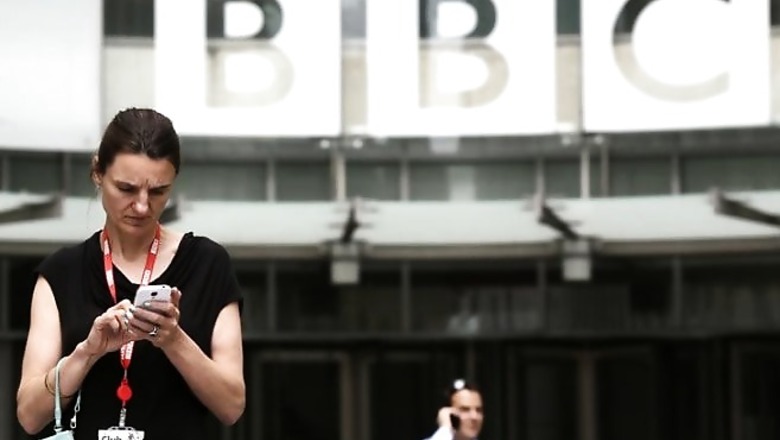
views
London: Grappling with a 150-million-pound budget deficit, the BBC on Friday announced it is axing more than 1,000 jobs, as senior management services are sacrificed in a massive drive expected to save 50 million pounds annually for the corporation amid changing viewing habits.
"A simpler, leaner, BBC is the right thing to do and it can also help us meet the financial challenges we face," said Tony Hall, director general of the BBC.
The current wave of cuts is expected to save around 50 million pounds a year, but the BBC has suggested there could be more job losses as it grapples with a 150-million-pound budget gap in its licence fee income largely due to the faster-than expected switch to online viewing.
"We've already significantly cut the costs of running the BBC, but in times of very tough choices we need to focus on what really matters -- delivering outstanding programmes and content for all our audiences," he said.
An unexpected increase in the number of households saying they do not watch live TV so do not pay for a licence has been blamed for the shortfall. The licence fee, or the charge each UK household pays for
watching television, is the BBC's main source of income.
Three layers of management are expected to be cut, while some of BBC's divisions will be reduced as part of the drive. Most of the jobs will go from BBC's professional and support services, as part of efforts to cut back on duplication of roles. Lord Hall said he recognised "this is a tough message" but the BBC was facing "difficult choices" because of the tough financial climate.
The announcement comes on the back of measures aimed at making 1.5 billion pounds of savings a year by 2017 by reducing the amount of money spent on administration, property costs and sports rights.
Around 400 jobs had also already been targeted as part of the Delivering Quality First cost-cutting drive.
The BBC licence fee of 145.50 pounds a year has been frozen for seven years, and the process of charter renewal is getting under way, which will decide how the BBC is run when its current royal charter runs out at the end of 2016.
Broadcast union Bectu said while it supports the BBC's ambitions of "simplification and standardisation", it is opposed to any compulsory redundancies.
General secretary Gerry Morrissey said: "We welcome the aims and the commitment to cutting the layers of management between the DG and programme makers, for example. "That said it is essential, as in any programme of cuts, that staff and unions are fully involved in the consultation and that where jobs are closed that redeployment opportunities are maximised."



















Comments
0 comment